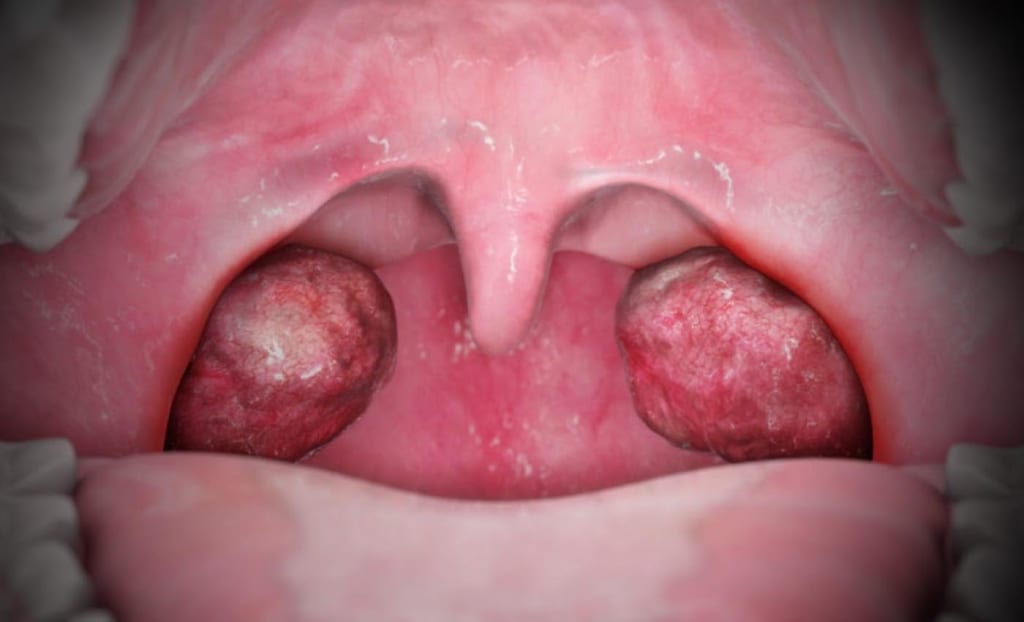Tonsilloliths (Tonsil Stones)
Causes, Symptoms, and Treatment for Tonsil Stones

Introduction:
Tonsilloliths, commonly known as tonsil stones, are small, calcified deposits that form in the crevices of the tonsils. While often harmless, these stones can cause discomfort and lead to unpleasant symptoms. In this article, we will explore the causes of tonsil stones, discuss their associated symptoms, and provide an overview of the available treatment options.
Understanding Tonsilloliths:
Tonsils are two masses of tissue located at the back of the throat, and their purpose is to help fight off infections. Tonsil stones develop when debris, such as food particles, dead cells, and mucus, accumulate and become trapped in the tonsil crevices. Over time, these deposits can harden and form tonsilloliths. While the exact cause of tonsil stone formation is not fully understood, factors such as poor oral hygiene, chronic tonsillitis, and the presence of crypts or crevices in the tonsils contribute to their development.
Symptoms of Tonsil Stones:
Tonsil stones often go unnoticed as they may not cause any symptoms. However, when they become larger or more numerous, they can cause discomfort and unpleasant symptoms. Common symptoms of tonsil stones include persistent bad breath (halitosis), a sore throat, difficulty swallowing, a metallic taste in the mouth, and ear pain. Some individuals may also experience a persistent cough or the sensation of something being stuck in the throat. These symptoms can significantly impact a person's quality of life and prompt them to seek treatment.
Diagnosis of Tonsilloliths:
Diagnosing tonsil stones typically involves a physical examination of the throat by a healthcare professional. The presence of white or yellowish, irregularly shaped deposits in the tonsils is a clear indication of tonsilloliths. In some cases, additional imaging tests, such as X-rays or CT scans, may be performed to rule out other conditions and evaluate the extent of the stone formation.
Treatment Options:
The treatment of tonsil stones depends on the severity of symptoms and the impact on an individual's daily life. In mild cases, where tonsil stones are small and asymptomatic, no treatment may be necessary. Practicing good oral hygiene, including regular brushing and flossing, can help prevent the accumulation of debris and reduce the risk of tonsil stone formation.
For individuals experiencing significant symptoms or recurrent tonsil stones, various treatment options are available. These include:
1. Manual Removal: A healthcare professional can manually dislodge tonsil stones using a swab, a curette, or specialized tools. This procedure is typically performed under local anesthesia and can provide immediate relief.
2. Salt Water Gargles: Rinsing the mouth with warm salt water can help alleviate symptoms and reduce inflammation. Gargling with salt water can also help dislodge smaller tonsil stones.
3. Oral Irrigation: Using a water flosser or oral irrigator can help flush out debris from the tonsil crevices, reducing the likelihood of tonsil stone formation.
4. Laser Cryptolysis: In this minimally invasive procedure, a laser is used to smooth the surface of the tonsils, eliminating the crevices where tonsil stones tend to form.
5. Tonsillectomy: For individuals with recurrent and severe tonsil stones or underlying tonsil-related issues, a tonsillectomy may be recommended. This surgical procedure involves the complete removal of the tonsils and can effectively prevent future tonsil stone formation.
Prevention and Self
-Care
Taking preventive measures and practicing good oral hygiene can help reduce the risk of tonsil stones. These include:
- - Regular brushing and flossing to remove debris and bacteria from the mouth.
- - Using an antimicrobial mouthwash to kill bacteria and reduce the formation of tonsil stones.
- - Gently scraping the surface of the tongue to remove bacteria and debris.
- - Staying hydrated to promote saliva production, which helps cleanse the mouth.
- - Avoiding tobacco products and excessive alcohol consumption, as these can contribute to tonsil stone formation.
When to Seek Medical Advice:
While tonsil stones are generally harmless, it is advisable to seek medical advice if they cause persistent symptoms or significantly impact daily life. A healthcare professional can assess the situation, provide a proper diagnosis, and recommend appropriate treatment options based on individual needs.
Conclusion:
Tonsilloliths, or tonsil stones, can be a source of discomfort and unpleasant symptoms. Understanding the causes, symptoms, and available treatment options is crucial in managing this condition effectively. Practicing good oral hygiene, seeking medical advice when necessary, and adopting preventive measures can help reduce the risk of tonsil stone formation and improve overall oral health. Remember, a healthcare professional can provide personalized guidance and recommend the most suitable treatment approach for individual cases of tonsil stones.






Comments
There are no comments for this story
Be the first to respond and start the conversation.